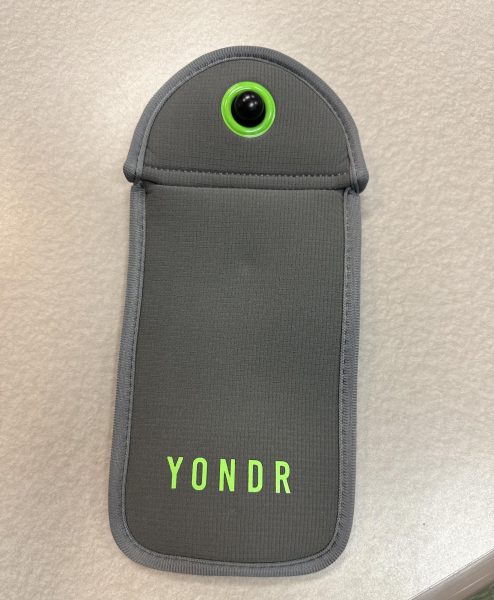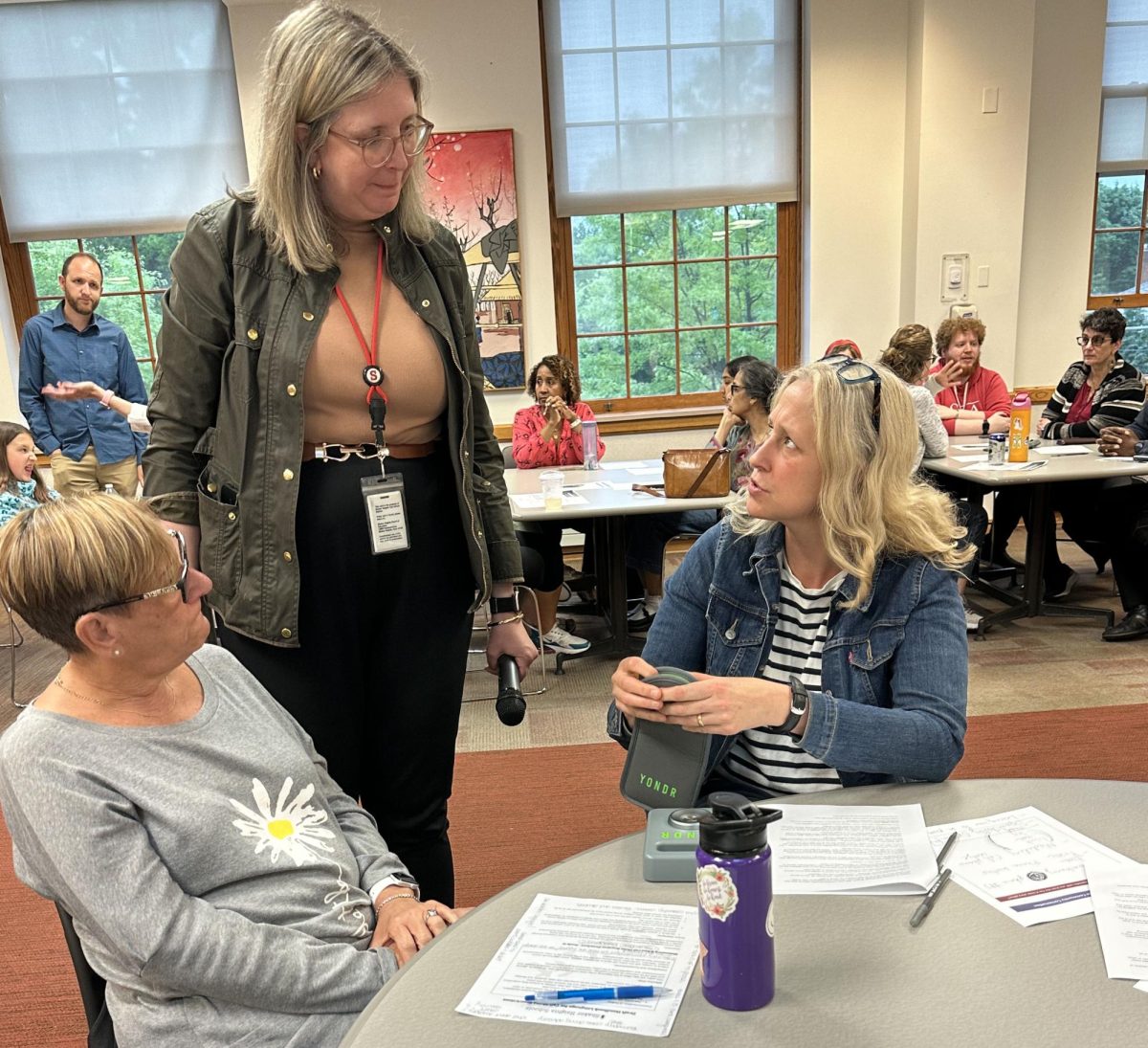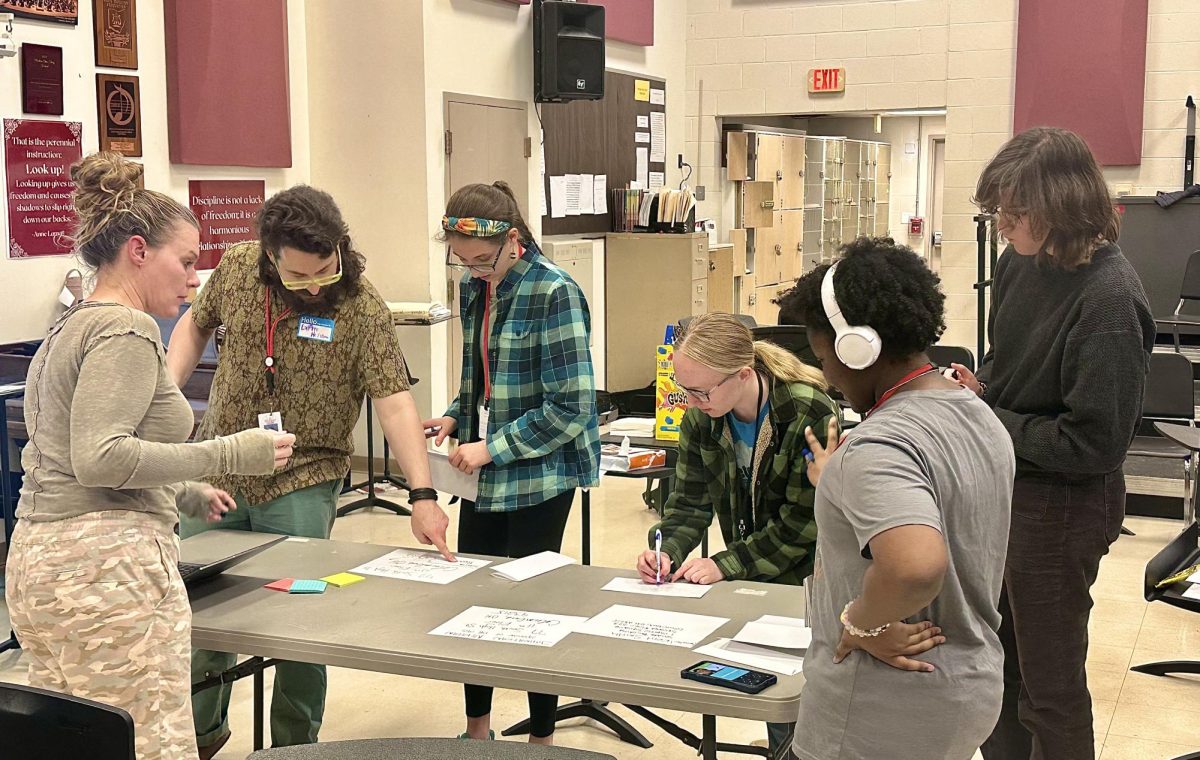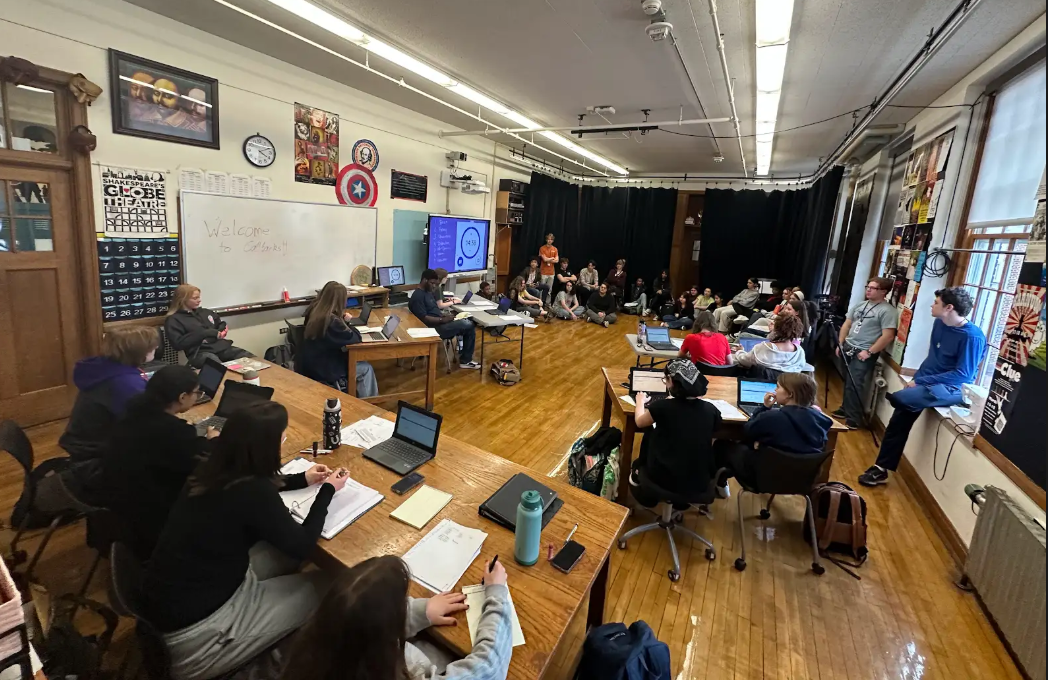Public schools around the country have already implemented cell phone bans. Thanks to a new Ohio law, Shaker schools will soon join them.
In a Jan. 18 email to students and staff, Principal Eric Juli introduced the idea of Yondr pouches for the 2024-25 school year to reduce fighting and increase safety at the high school. “Our staff is preparing to implement systems to decrease cell phone usage in classrooms and the hallways,” Juli said. “We will investigate the potential use of Yondr pouches for all student cellular devices during the entire school day.”
However, when school resumes in August, this cell phone policy will no longer just be the district’s idea. State representatives have approved House Bill 250, which will require public schools to create written policies that would restrict student cell phone use during school hours. Gov. Mike DeWine has previously expressed support for such a law and is set to sign it. The law is meant to promote safety, focus and learning in schools but includes exceptions for students who rely on phones for medical or learning purposes that are documented in IEPs.
In news stories about the decision to restrict phone use, school officials said policies are meant to make schools safer and keep students engaged. A Yondr pouch is a secure bag used to store and lock away smartphones. The pouch locks magnetically and is unlocked by tapping it on an unlocking base. Thirteen Akron public schools implemented Yondr pouches last school year.
According to Associate Principal James Dubsky, using the pouches next year “is a very realistic possibility. To the best of my knowledge, each student will receive their own Yondr pouch. They will secure their cell phones in their own pouches,” he said.
Dubsky said students would keep their phones with them all day, but the Yondr pouch would restrict access. “Students would have to bring their Yondr pouch to school daily, as they currently do with IDs,” he said.

Students, parents, teachers and alumni expressed strong thoughts, opinions and questions about the possibility of a phone policy.
Sophomore Deborah Butler doesn’t think it would be fair. “They expect us to be in school longer and have 90-minute classes? Shouldn’t we be able to access our phones?” Butler said. “I don’t think anyone would feel OK with this.” Next school year the high school will feature alternate 90-minute classes rather than 85-minute classes like this school year.
Shaker parent and alumna Kimberly Clarke (’98) questioned the need for a schoolwide policy. “It would make it hard for parents to reach their children in case of an emergency,” she said. “Why punish students who do right for the few who do wrong?”
Senior Administrative Assistant Laurie Brem said a cell phone allows her to communicate with her daughter about after-school plans and transportation. “She has also used it to tell me she isn’t feeling well,” Brem said.
The phone is both convenient and reassuring, Brem said. “I do believe it makes her feel more safe and secure knowing that she can reach me at any time for whatever reason. I like being able to communicate with her as well, when necessary,” she said.
English teacher John Morris said that he doesn’t think a cell phone makes his daughter safer and more secure at school. “If we had less than 47 exits and entrances in our building and enhanced security systems, that would make me feel she is more safe and secure,” said Morris, who is president of the Shaker Heights Teachers’ Association.
In 2023, a high school in Cherry Hill, New Jersey investigated the main causes of fights in public high schools. Many causes they identified are common causes of fights at SHHS: rumors, lack of respect or even boredom.
Special education paraprofessional Kathleen D. Pierce, who serves on the faculty cell phone committee, doesn’t think the phones themselves are the problem. “It’s the social media that comes with it. The ‘talking hateful smack’ that some students do to each other off campus, I believe, has caused a lot of fights and disruptions at school. It feeds off itself to a downward spiral,” Pierce said.
Yondr pouches would discourage SHHS students from recording fights for entertainment. Dubsky said that the administration believes videos of fights that circulate on social media do not reflect fairly on the school.
About 40 community members attended a public meeting May 14 held in the upper cafeteria. The district organized the meeting to solicit feedback about draft policy language and its reasons for restricting phone use at school. All those who commented supported the change, and several who spoke emphasized the need for a clear, consistently enforced policy.
Said one parent of a high school student, “The consequences need to be set, and they need to stand.”







